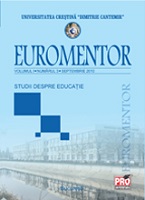ON THE TRANSLATION PRINCIPLES INVOLVED IN RENDERING ABSTRACT CONCEPTS IN THE JAPANESE VERSION OF “FIDES NO DŎXI”- A COMPARISON WITH THE SPANISH ORIGINAL
ON THE TRANSLATION PRINCIPLES INVOLVED IN RENDERING ABSTRACT CONCEPTS IN THE JAPANESE VERSION OF “FIDES NO DŎXI”- A COMPARISON WITH THE SPANISH ORIGINAL
Author(s): Florin PopescuSubject(s): Christian Theology and Religion, Language studies, Studies of Literature, 16th Century, Philology, Translation Studies
Published by: Editura Pro Universitaria
Keywords: Literal translation; free translation; Fides no Dŏxi; Luis de Granada; Amacusa Jesuit Company;
Summary/Abstract: This paper discusses the translated equivalents of two terms (infinito and perfecto) by doing comparison of “Fides no Dŏxi” with its original work by Luis de Granada in Spanish. The terms reflected into the Japanese text were grouped by types as literal translation, translation into a superlative etc, then they were further classified from the point of view of the concepts modified by the words (God, God’s virtues, people, things). The results pointed out to a firmly unified translation principle to use the most literal translations in phrases speaking of God or Jesus and looser translations (done with more rhetorical consideration) for less godly matters.
Journal: Euromentor Journal - Studies about education
- Issue Year: XII/2021
- Issue No: 2
- Page Range: 15-32
- Page Count: 18
- Language: English

